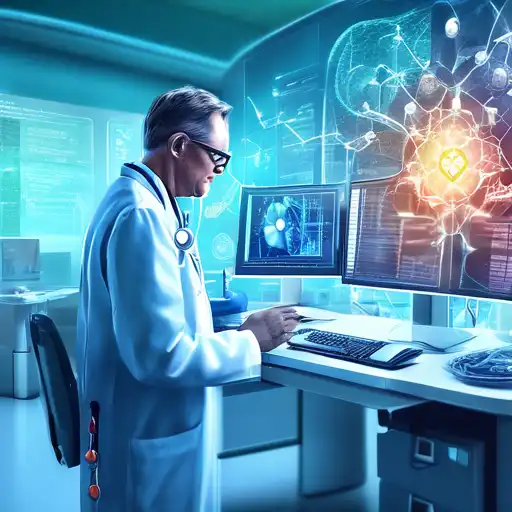The Transformative Impact of Data Science on Modern Healthcare
In the rapidly evolving world of healthcare, data science has emerged as a cornerstone of innovation, driving significant improvements in patient care, operational efficiency, and medical research. This article explores the multifaceted ways in which data science is reshaping the healthcare landscape, offering a glimpse into a future where data-driven decisions lead to better health outcomes for all.
Enhancing Patient Care with Predictive Analytics
One of the most notable contributions of data science to healthcare is the advent of predictive analytics. By analyzing vast datasets, healthcare providers can now predict patient risks and outcomes with remarkable accuracy. This not only enables early intervention but also personalizes patient care plans, ensuring that individuals receive the most effective treatments based on their unique health profiles.
Streamlining Operations Through Big Data
Beyond patient care, data science is revolutionizing healthcare operations. Hospitals and clinics are leveraging big data to optimize staffing, reduce wait times, and manage resources more efficiently. This operational streamlining not only cuts costs but also enhances the patient experience, making healthcare services more accessible and responsive.
Accelerating Medical Research with Machine Learning
Machine learning, a subset of data science, is accelerating the pace of medical research. By sifting through complex biological data, researchers can identify potential drug candidates and understand disease mechanisms at an unprecedented speed. This is paving the way for breakthroughs in treatments for conditions that were once considered incurable.
Improving Public Health with Data-Driven Insights
Data science is also playing a pivotal role in public health, enabling authorities to track disease outbreaks, monitor health trends, and implement targeted interventions. This data-driven approach to public health is instrumental in preventing epidemics and promoting healthier communities.
As we look to the future, the integration of data science in healthcare promises even greater advancements. From wearable technology that monitors vital signs in real-time to AI-powered diagnostic tools, the possibilities are endless. The key to unlocking this potential lies in continued investment in data science education and infrastructure, ensuring that the healthcare industry can fully harness the power of data to improve lives.
For more insights into how technology is transforming healthcare, explore our articles on medical technology and big data in healthcare.
